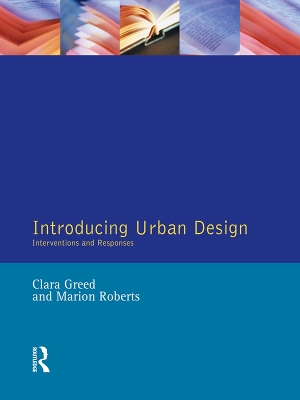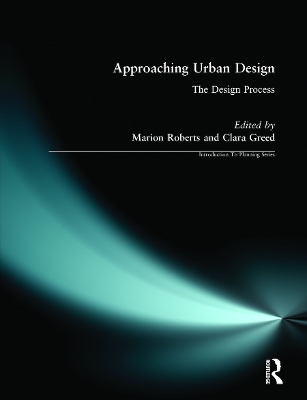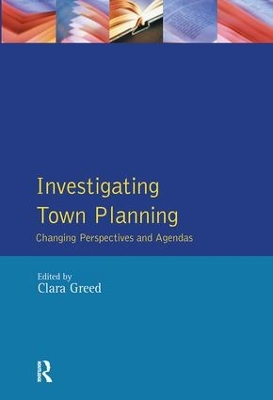Introduction To Planning
3 total works
Introducing Urban Design: Interventions and Responses is a new departure in the town planning series under the editorship of Clara Greed. The dynamic new subject and profession of urban design straddles the fields of town planning, architecture, landscape architecture and transport planning. This book recognises that a key feature of modern urban design practice is the ability to integrate a concern with the visual and aesthetic aspects of urban form, with a strong social awareness of the need of user groups, plus a sensitivity to wider environmental and sustainability issues. In this it continues the themes already introduced in earlier volumes, such as the changing nature of the profession, social problems and the means of implementing policy.
Written by a team of eminent urban designers, architects and planners under the joint editorship of Clara Greed and Marion Roberts, the book introduces the reader to the subject through a discussion of current issues, approaches and user responses.
Introducing Urban Design: Interventions and Responses is an ideal resource for undergraduate courses in town planning, architecture, landscape architecture, estate management and housing studies. It is also suitable as an introductory text for first year diploma and masters programmes in urban design and suitable for RTPI, RICS, CIOH, CIOB, ASI, ISVA and RIBA courses and will be of interest to professional practioners in the urban design field.
This companion to Introducing Urban Design: Interventions and Responses shows how the principles and concepts of urban design can be applied and implemented in a range of real-world settings.
Following on from Introducing Town Planning andImplementing Town Planning, this third volume in the series examines the scope and nature of modern town planning in greater depth. It investigates the theories and preoccupations which inform the current planning agenda, compares this with earlier objectives, and discusses likely future trends.
Written by a team of expert contributors under the general editorship of Clara Greed, the book begins with a review of town planning and then goes on to discuss the major themes in five parts:
- the economic context of town planning
- planning for housing
- planning for sustainability
- planning for city centres or decentralisation
- changing agendas and agencies
Within this contextualising framework the contributors investigate many of the current, and often conflicting, urban policy issues challenging the planning profession. Over and above a commitment to traditional, physical land use matters, planning practitioners nowadays must take on board new priorities, deriving from the environmental movement, the European Union, the economic climate, changing local authority structures, and legislative frameworks. The contributors discuss these new agendas, and demonstrate how they link to inner city regeneration, city centre management, sustainability issues, and wider social policy and urban governance questions.
This volume incorporates a more discursive and reflective approach to studying, and thus constitutes a valuable text for final year undergraduate and postgraduate courses in town planning, surveying, building, architecture, and housing, as well as RTPI, RICS, CIOH, CIOB, ASI, ISVA and RIBA courses. It will be of interest to a wider readership studying urban economics, urban sociology, social policy and urban geography, and to young professionals in both the public and private sector of the property world.


